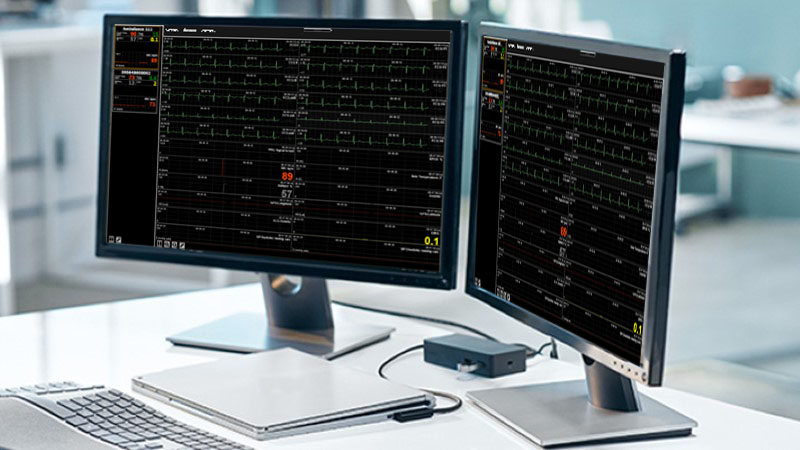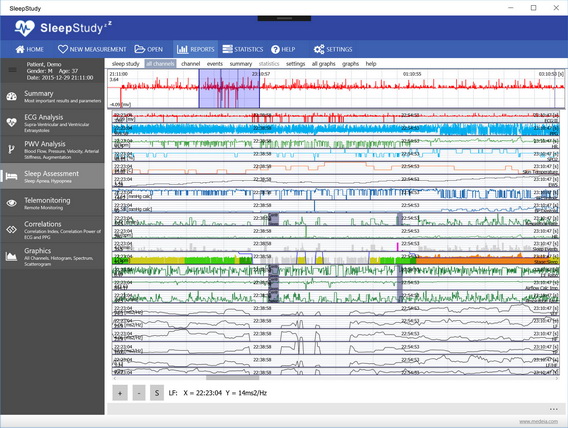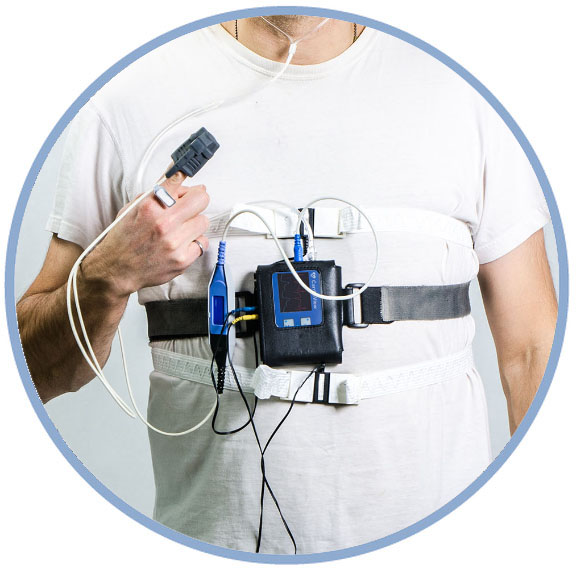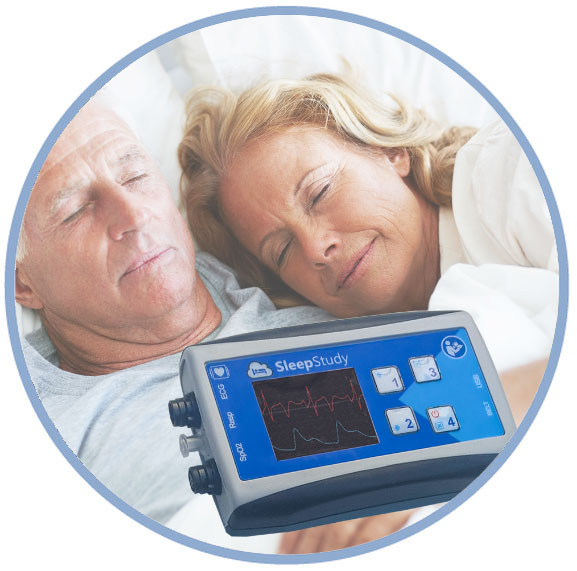- +1 800 433 4609
- |
- Request Info
- |
- Login
Better days start with better nights.
Empower your patients with sleep quality insights.
What is a Polysomnography (PSG)?
Sleep apnea can wreak havoc on a personís health for years without being detected, but it doesnít have to be that way. There is a proven and effective way to identify it. Nocturnal, laboratory-based polysomnography (PSG) is the most commonly used test in the diagnosis of obstructive sleep apnea syndrome (OSAS), and is considered the criterion standard for diagnosing OSAS. PSG consists of a simultaneous recording of multiple physiologic parameters related to sleep and wakefulness.
PSG can directly monitor and quantify the number of respiratory events (i.e., obstructive, central, or complex) and the resultant hypoxemia and arousals (lack of oxygen, and resulting increase in wakefulness) related to the respiratory events. This form of testing can determine not only whether a person has OSA but the severity of the disease, as well as whether they have any other sleep disorders. Once this information is known, doctors can decide on a course of treatment that will restore healthy sleep.
One flaw in the use of overnight sleep studies is that patients are typically evaluated for one night of sleep only. This can be enough to diagnose OSA, but it can give faulty information if the quality of sleep on the night studied is not typical of the patient. Night-to-night variability exists in many patients, making it preferable to monitor sleep on more than one night. At-home sleep study equipment makes it convenient and cost-effective to do this.





